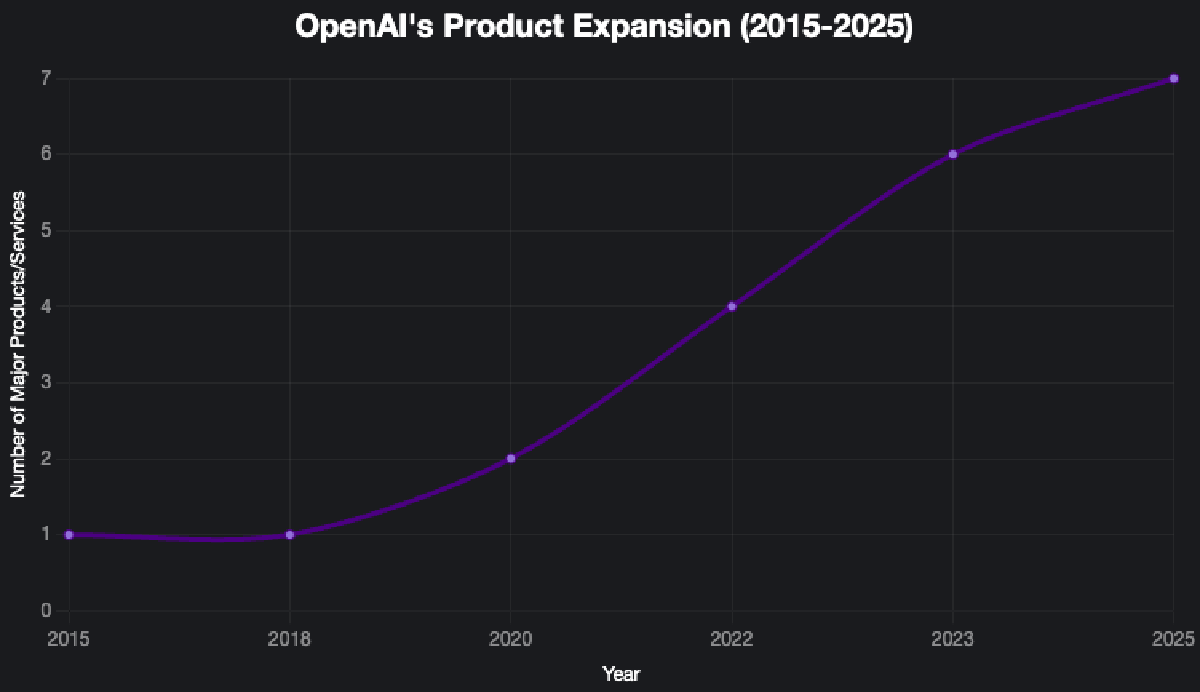OpenAI is building a TikTok competitor. But not just any competitor, one built entirely around AI-generated videos.
The company that once positioned itself as a research organization focused on artificial general intelligence is now entering the social media game. Because apparently, that’s where we are now.
What we know#
The rumored platform would let users create and share AI-generated video content, essentially turning anyone into a content creator without traditional production barriers.
Key details emerging:
- AI-generated videos as the primary content format
- Copyright opt-out mechanism for creators who don’t want their work used in training
- Social sharing features similar to TikTok’s model
- User-generated AI content at scale
Think TikTok, but instead of filming yourself, you prompt an AI to create whatever video you imagine.
The bigger picture#
Remember when OpenAI was a nonprofit research lab focused on safely developing AGI? Those were simpler times.
Now we have:
- ChatGPT dominating conversational AI
- DALL-E for image generation
- Sora creating Hollywood-quality videos
- API services powering thousands of applications
- Shopping integration with Instant Checkout
- Proactive AI with ChatGPT Pulse
- And now… social media
That’s quite the portfolio expansion for an organization that started with the mission to “ensure artificial general intelligence benefits all of humanity.”
The strategic question#
What exactly is OpenAI becoming?
Option 1: A comprehensive AI platform that touches every part of digital life. Research was just the foundation; now it’s time to build the consumer layer.
Option 2: A company that’s discovered where the real money is. Social media and commerce generate revenue at scale that research grants never could.
Option 3: The natural evolution of an AI company. If you can generate content, why not create the platforms where that content lives?
Option 4: All of the above, with a dash of “let’s see what sticks.”
The content creation angle#
AI-generated social media content isn’t theoretical anymore. We’re already seeing:
- Influencers using AI to scale their output
- Brands creating AI spokespeople for marketing
- Musicians generating AI vocals for new sounds
- Artists experimenting with AI-assisted creation
An OpenAI-powered social platform could democratize content creation in ways we haven’t seen before. Or it could flood social media with even more synthetic content that’s harder to distinguish from reality.
Both scenarios seem equally likely.
The competitive landscape#
TikTok revolutionized short-form video. Instagram copied it. YouTube added Shorts. Everyone’s chasing the same engagement model.
But AI-generated content changes the game entirely:
- Infinite creativity without traditional constraints
- Language barriers become irrelevant with AI translation
- Production costs approach zero
- Content velocity increases exponentially
If OpenAI succeeds, they won’t just be competing with TikTok. They’ll be defining what social media becomes in an AI-first world.
The questions nobody’s asking#
Who owns the content? When AI generates a video based on your prompt, who has the rights? You? OpenAI? The training data contributors?
What happens to human creators? If AI can generate engaging content at scale, where does that leave traditional content creators?
How do you moderate AI content? When the platform is built around synthetic media, how do you handle misinformation, deepfakes, or harmful content?
Is this good for society? More AI-generated content on social media sounds like accelerating our reality distortion problem, not solving it.
What this really means#
OpenAI isn’t just expanding their product line. They’re positioning themselves as the infrastructure for an AI-native internet.
Research lab to conversational AI to image generation to video creation to social platforms to e-commerce integration. That’s not random diversification, that’s building an end-to-end AI ecosystem.
The question is: Do we want one company controlling that much of our AI-powered future?
And perhaps more importantly: Is this the path toward beneficial AGI, or is this what happens when research organizations discover venture capitalism?
The bigger story: This TikTok competitor is just the latest chapter in OpenAI’s transformation from research lab to tech conglomerate. Where it goes next might tell us more about the future of AI than any research paper ever could.


